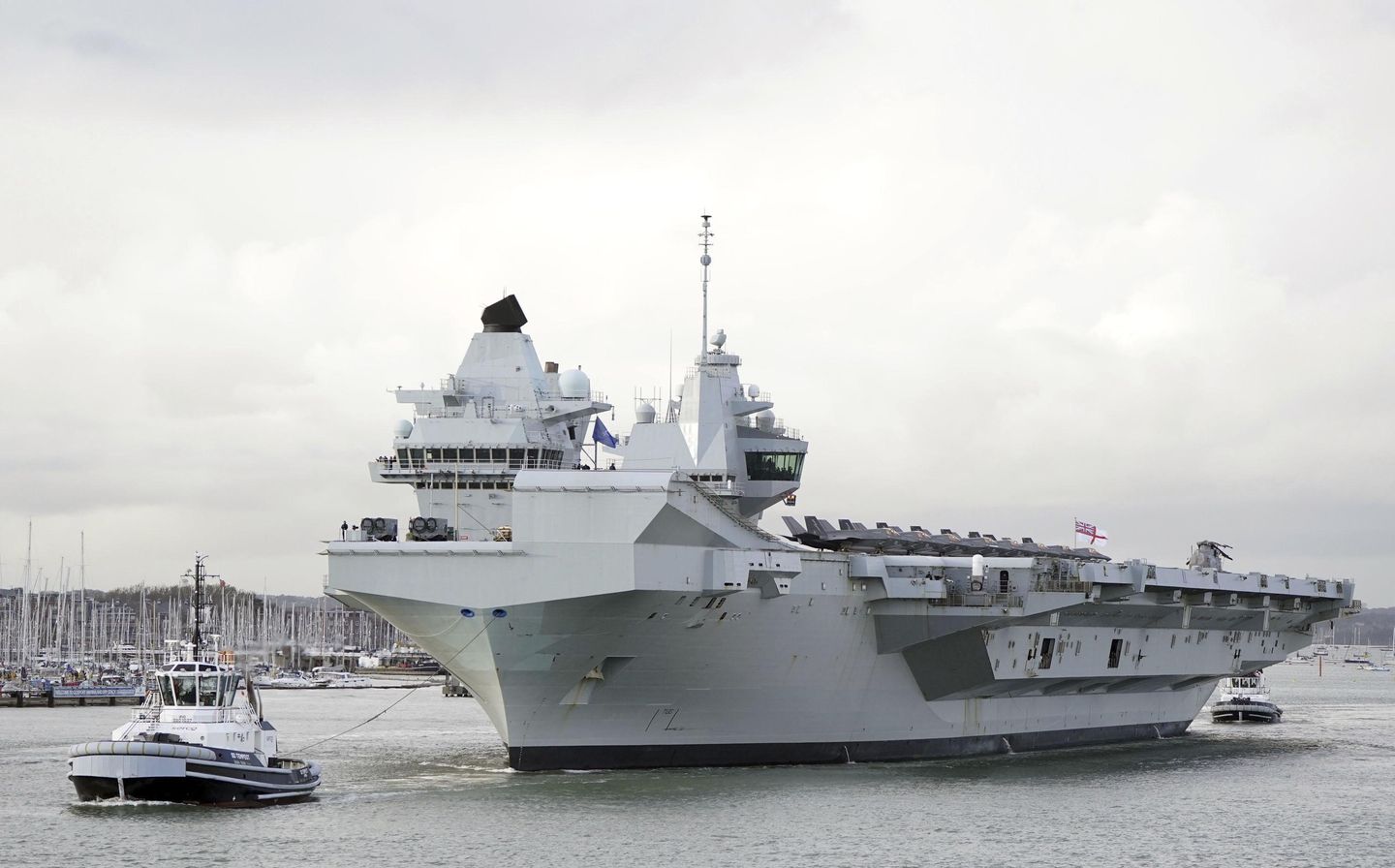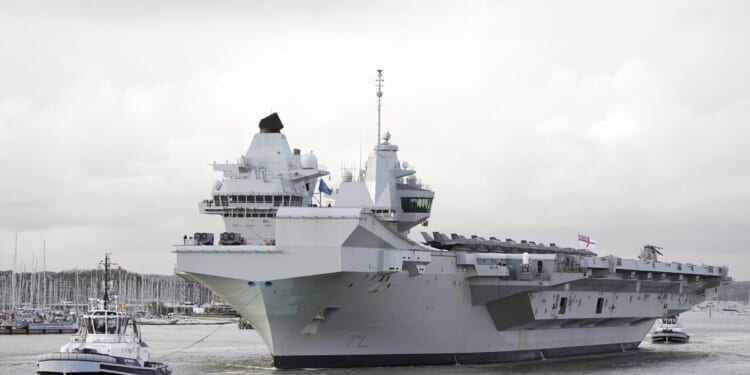
LONDON — A British aircraft carrier that had been set to lead the largest NATO exercises since the Cold War will not set sail Sunday after a problem with its propeller was discovered during final checks, the Royal Navy said.
The HMS Queen Elizabeth will not join the exercises off Norway’s Arctic coast and will be replaced by the HMS Prince of Wales.
The change of plans is almost a reverse scenario of what happened in August 2022 when the Prince of Wales broke down with a propeller problem on its way to carry out training exercises with the United States and Canada off North America. The carrier had to be towed back to port from the Isle of Wight and the HMS Queen Elizabeth took its place in the exercises.
With the HMS Queen Elizabeth sidelined, the navy may not be able to deploy an aircraft to the Red Sea – as armed forces minister James Heappey has suggested – where hostilities have been heating up with Iran-backed Houthi rebels targeting cargo ships in the waters connecting Asia with Europe and the U.S.
The U.K. joined the U.S. Saturday in striking 36 Houthi targets in Yemen in a second wave of assaults meant to further disable Iran-backed groups that have relentlessly attacked American and international interests.
The propeller problem is the second setback for the Royal Navy in less than three weeks, following a collision by two warships in a harbor in Bahrain, causing damage to the vessels but no injuries.
Military officials said they were investigating the cause of the collision in which the HMS Chiddingfold appeared to reverse into the HMS Bangor as it was docked. The two minehunters were based in the Middle East to help protect merchant vessels.
The HMS Prince of Wales will now lead Exercise Steadfast Defender with a carrier strike of eight ships, four British, along with U.S., Spanish and Danish vessels.












